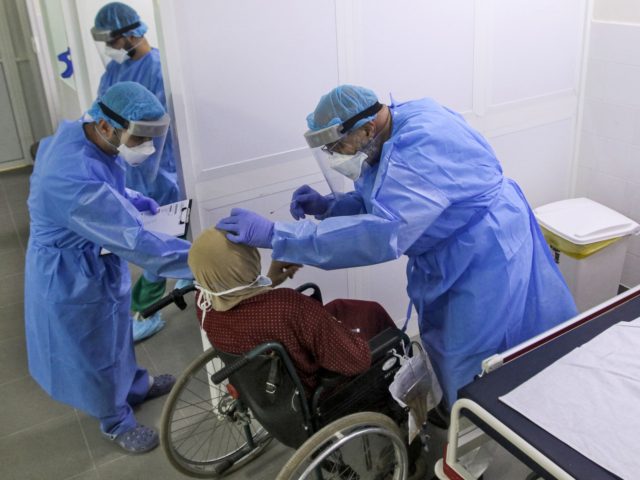Hundreds of highly qualified doctors are leaving Lebanon following some of the most turbulent years in the country’s history, Reuters revealed Thursday.
Reuters tallied at least 400 doctors and other medical professionals leaving the country amid falling wages and ongoing political and economic turmoil. As well as depressed wages, doctors are also having to deal with shortages of essential equipment, staff, and basic supplies as an 80 percent devaluation in the Lebanese pound has made many imports unaffordable.
The head of the Lebanese doctors’ syndicate, Sharaf Abou Sharaf, told Reuters that the emigration of so many doctors presents a major challenge to the country’s healthcare industry, particularly in university hospitals where they both practice and teach simultaneously.
“This bleeding of talent does not bode well, especially if the situation lasts long and there are others who are preparing to leave,” he said. “Their expertise was built over many years and is very hard to lose overnight. We will need many years to return the medical sector to its former glory.”
Ghazi Zaatari, Associate Dean for Faculty Affairs and Chair of the Department of Pathology & Laboratory Medicine at AUB, added he feared the exodus would only accelerate. “For the past 10 years we put a lot of effort into recruiting around 220 faculty members, and now it is very disheartening to see that many of those we hired are leaving again,” he told the news agency.
Lebanon’s current economic crisis is largely the result of a cocktail of unfortunate events that have damaged the stability of the country as a whole. Last year, widespread demonstrations demanding an end to corruption and the power of the ruling class eventually brought down the government of Prime Minister Saad Hariri. Hariri was reappointed to the role last month – his third time at the helm – after receiving a slim majority in parliament following the resignation of his successor Hassan Diab.
While typically unstable for years, a massive explosion of 2,750 tons of ammonium nitrate in the port of Beirut in August, killing at least 200 and injuring thousands, has triggered widespread outrage and partially collapsed the capital’s government, rendering it unable to run. Hundreds of thousands of people were left homeless by the explosion. The total damages were estimated to cost $15 billion, representing over a quarter of the country’s total GDP.
This year, the Chinese coronavirus pandemic also paralyzed the vast majority of the world’s economy, prompting a mandatory quarantine in Lebanon. Restrictions were eventually eased, although on Tuesday the government ordered a new two-week lockdown aimed at curbing the spread as hospitals reached critical capacity.
Follow Ben Kew on Parler, Facebook, or Twitter. You can email him at bkew@breitbart.com.

COMMENTS
Please let us know if you're having issues with commenting.